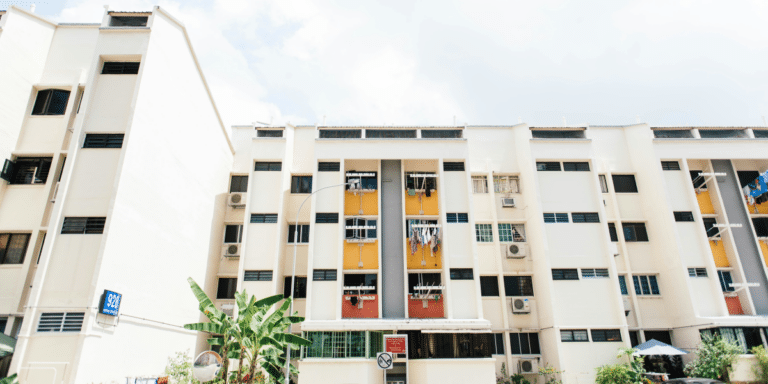Portland’s shopping malls have undergone significant transformations in the 2020s, navigating challenges such as the COVID-19 pandemic, shifting consumer preferences, and economic fluctuations. While some malls have struggled to maintain relevance, others have adapted by embracing innovative strategies and redevelopment plans. This article explores the key factors influencing the performance of Portland malls during this period and examines their future prospects.
The Impact of the COVID-19 Pandemic
The COVID-19 pandemic was a defining event for the retail industry, and Portland malls were no exception. The early 2020s saw malls grappling with temporary closures, capacity restrictions, and a rapid shift in consumer behavior.
Temporary Closures and Restrictions
In 2020, mandatory closures and social distancing measures led to a dramatic drop in foot traffic and sales for malls. Many retailers within these spaces struggled to survive, with some filing for bankruptcy or permanently closing their doors. These disruptions created a ripple effect, impacting the financial stability of mall operators.
Shift to E-Commerce
The pandemic accelerated the adoption of e-commerce, with consumers increasingly opting for online shopping over in-person visits. This shift dealt a significant blow to traditional brick-and-mortar retail spaces, forcing malls to reevaluate their strategies and embrace digital integration.
Changes in Consumer Behavior
The 2020s have seen notable shifts in consumer preferences, influencing how malls operate and attract visitors.
Preference for Open-Air Shopping
Health concerns during the pandemic drove a preference for open-air shopping centers over enclosed malls. Consumers perceived open-air environments as safer, prompting some malls to adapt by creating outdoor spaces or hosting events in less confined areas.
Demand for Experiential Retail
Today’s consumers are seeking more than just a shopping experience—they want entertainment, dining, and interactive activities. Malls have responded by incorporating attractions such as movie theaters, escape rooms, and pop-up events to draw visitors and encourage longer stays.
Economic Factors Influencing Portland Malls
Economic trends have also played a significant role in shaping the fortunes of Portland malls in the 2020s.
Retail Vacancy Rates
As of the first quarter of 2023, Portland’s retail center market experienced a negative net absorption of 115,000 square feet, pushing the vacancy rate to 4.8%. This increase reflects the challenges faced by mall operators in retaining tenants amid changing retail landscapes.
Rental Rate Adjustments
In the same period, direct asking rates on a triple net basis (NNN) decreased by 1.4% quarter-on-quarter. This decline indicates a strategic move by mall operators to attract tenants through more competitive leasing terms.
Adaptation Strategies by Portland Malls
To remain relevant and competitive, Portland malls have adopted various strategies to adapt to changing market conditions and consumer expectations.
Diversification of Tenant Mix
Malls are no longer just spaces for retail shopping. Many have diversified their tenant mix to include non-traditional occupants such as medical clinics, fitness centers, and co-working spaces. This approach helps fill vacancies and draws in a broader range of visitors.
Emphasis on Local Businesses
Integrating local retailers and artisans has become a growing trend. By offering unique, community-oriented shopping experiences, malls differentiate themselves from larger, more generic competitors. This strategy also resonates with Portland’s culture of supporting local businesses.
Notable Mall Developments in Portland
Some of Portland’s most iconic malls have faced unique challenges and opportunities in the 2020s, reflecting broader industry trends.
Lloyd Center
Once a premier shopping destination, Lloyd Center has experienced declining foot traffic and widespread store closures. These challenges have sparked discussions about the mall’s redevelopment, with proposals to repurpose the space into a mixed-use complex featuring residential, office, and entertainment facilities.
Washington Square
In contrast, Washington Square has managed to maintain steady visitor numbers despite industry challenges. Housing major retailers and offering a range of dining and entertainment options, it continues to perform well, serving as a benchmark for other malls in the region.
Future Outlook for Portland Malls
As Portland malls navigate the remainder of the decade, several trends and strategies are expected to shape their future.
Redevelopment Projects
Redevelopment is emerging as a key strategy for struggling malls. By transforming into mixed-use spaces that include residential units, offices, and entertainment venues, malls can create urban hubs that attract diverse audiences. This approach not only revitalizes outdated properties but also aligns with Portland’s urban development goals.
Sustainability Initiatives
Sustainability is becoming a priority for mall operators, driven by consumer demand and environmental considerations. Energy-efficient designs, eco-friendly materials, and waste reduction programs are being integrated into mall redevelopment plans, appealing to environmentally conscious shoppers.
Portland malls in the 2020s have faced a complex mix of challenges and opportunities. The COVID-19 pandemic, shifting consumer behavior, and economic fluctuations have forced malls to adapt or risk obsolescence. While some, like Lloyd Center, grapple with reinvention, others, such as Washington Square, continue to thrive by embracing innovation and community-centric strategies.
The future of Portland malls lies in their ability to diversify, integrate sustainable practices, and meet the evolving expectations of modern consumers. By adopting these approaches, they can not only survive but also thrive in the changing retail landscape.








